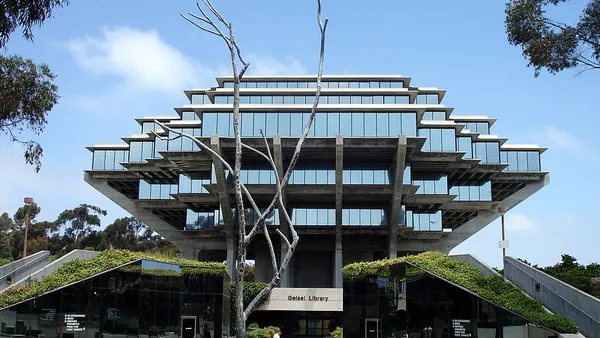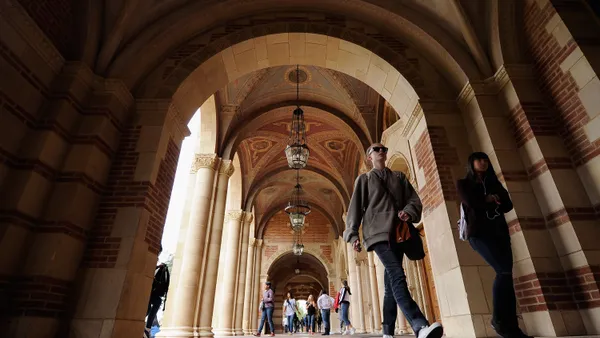Dive Brief:
- Layoffs are coming to the University of California, Santa Cruz as the institution tries to get a handle on its budget, Chancellor Cynthia Larive said in a message to campus Aug. 20.
- The public university’s fiscal 2024 year, which ended June 30, showed it had a whopping $107 million deficit in its core funds, which include state appropriations, tuition and fees. “This gap is concerning because it is both significant and higher than our initial Budget Office projection,” the chancellor said.
- Campus leaders are moving ahead with plans to reduce spending by $17 million for the fiscal 2025 year, which will require cutting back staff levels, Larive said. She noted that most reductions would be from eliminating unfilled rolls, but cuts would include some layoffs as well.
Dive Insight:
UC Santa Cruz officials expect to end the fiscal 2025 year with a structural deficit of $126 million. Its core funds deficit is projected at $111 million — and that’s after figuring in $17 million in cuts the campus is implementing now.
“For all our success, we also have challenges we must confront,” Larive said.
The chancellor also signaled that more action is coming during the fiscal 2025 year and beyond, including an extension of the university’s hiring slowdown. Additionally, “there may be a limited number of additional layoffs,” Larive added.
She added some hiring could be “necessary in selected areas” to support key operations or to help UC Santa Cruz bring in new revenue.
On a webpage devoted to the issue, the university attributed its deficits to factors including rising salaries and other costs — among them insurance and utilities — as well as falling enrollment. The university specifically noted that enrollment of higher-tuition paying groups, namely out-of-state and international students, fell during the pandemic years and may not recover in the near future.
Fall enrollment dropped 1.8% to 19,478 students in the year between 2021 and 2022, according to federal data.
Causes aside, UC Santa Cruz’s deficits are weighing on its broader financial health. Larive said that fiscal 2024’s deficits were covered by one-time campus reserves.
“Those funds are diminishing due to accumulated deficits, which is why we need to take immediate steps to address our core-budget shortfall,” she said.
The university said it will have officials put more “more scrutiny on core funds discretionary spending, such as hiring, contracting, travel, etc.” Committees led by university executives are also looking at further spending reductions and new revenue opportunities, the university said.
Despite the deficits and cuts, Larive sprinkled positive notes throughout her message to campus.
“I remain confident that we will be able to address these challenges while pursuing advancements for the campus longer term,” she said.













